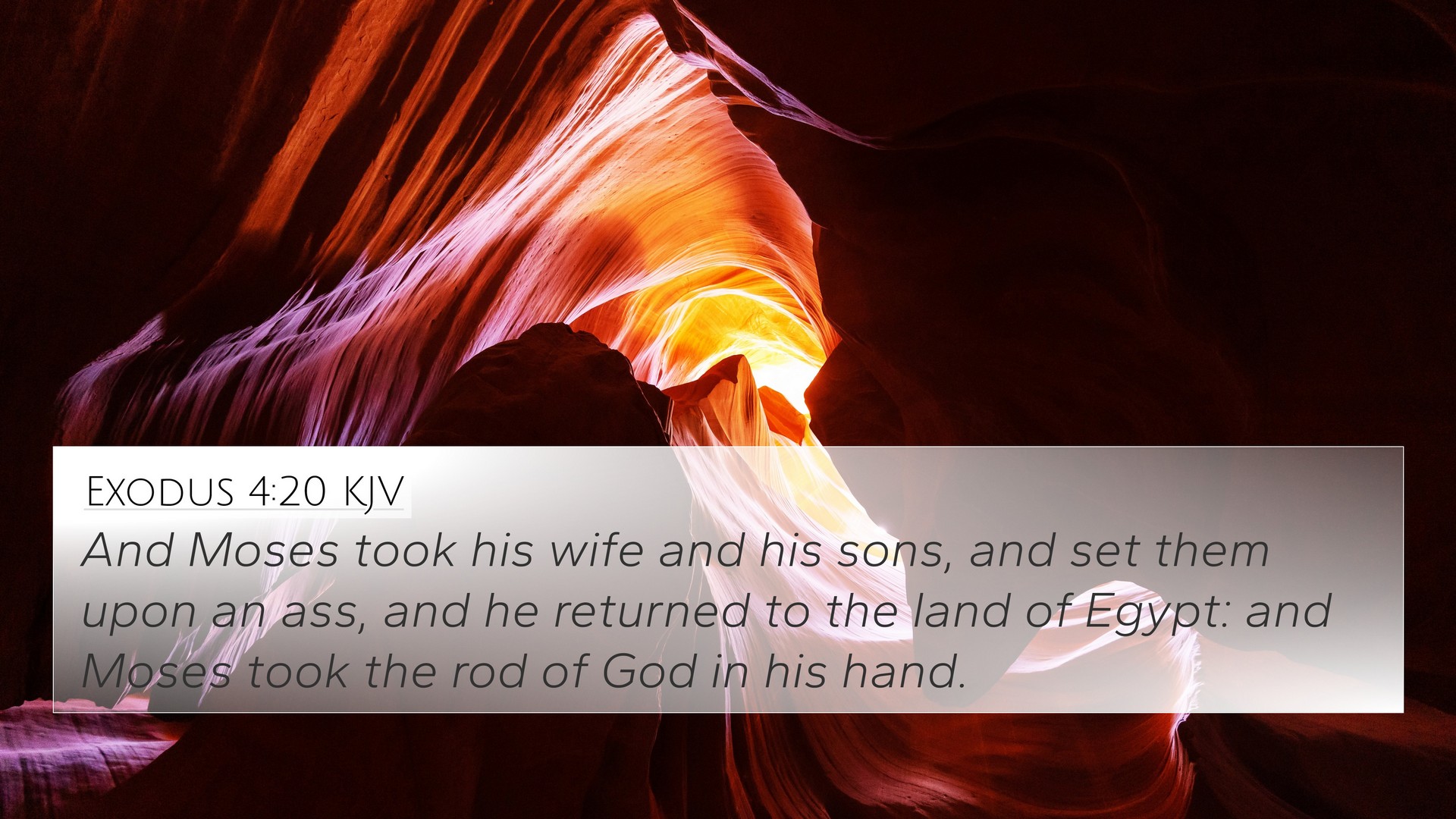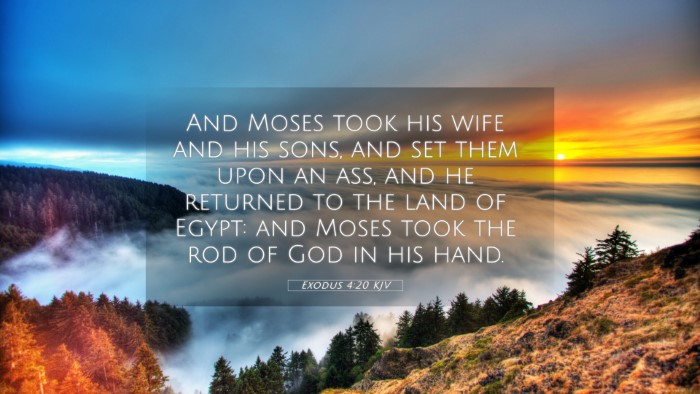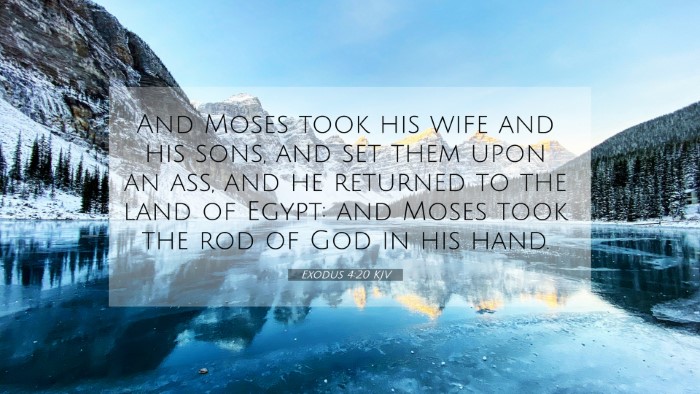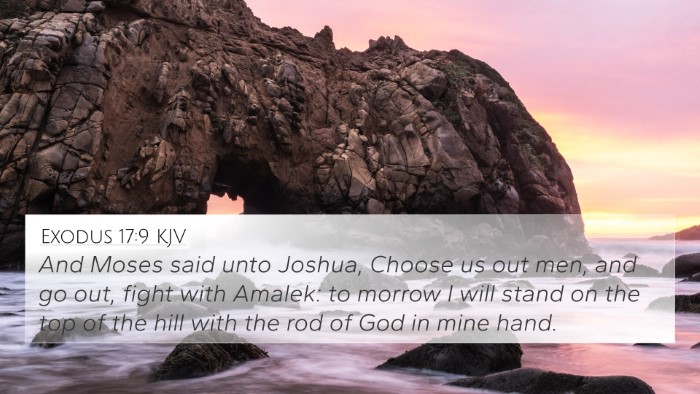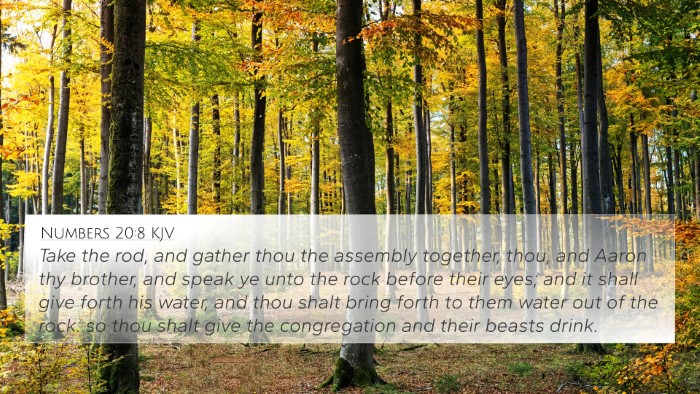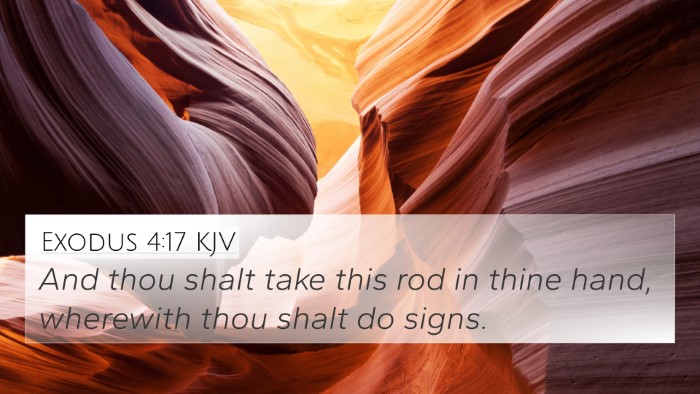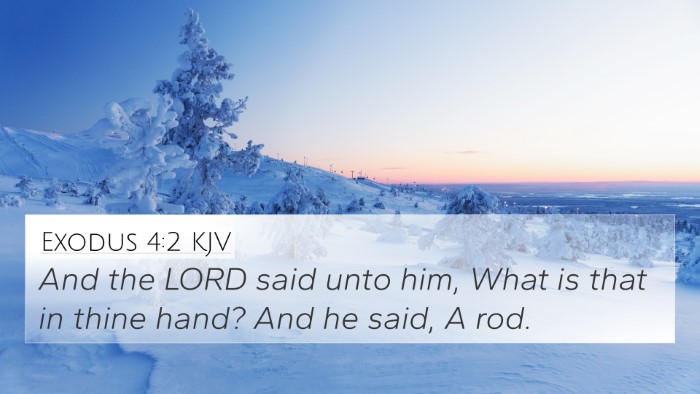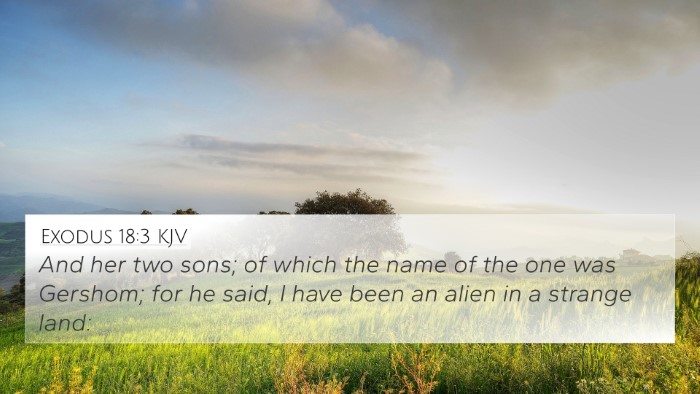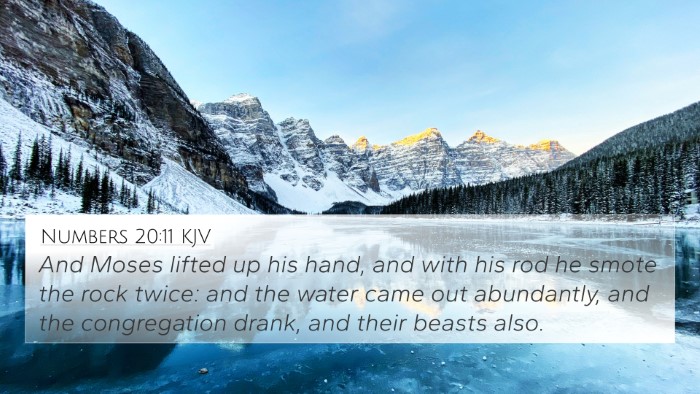Understanding Exodus 4:20
Exodus 4:20 states: "And Moses took his wife and his sons, and set them upon an ass, and he returned to the land of Egypt: and Moses took the rod of God in his hand." This verse signifies a crucial turning point in Moses' life as he prepares to return to Egypt to lead the Israelites out of captivity. Below, we explore the meaning of this verse, drawing insights from public domain commentaries.
Summary of Key Themes
- The Call of Moses: This verse is a continuation of Moses responding to God's call. After receiving God's command, he is now setting forth to fulfill his mission.
- Family Commitment: Moses' decision to take his wife and children demonstrates that he was not only devoted to God's calling but also to his family.
- Symbolism of the Rod: The "rod of God" symbolizes divine authority and power. It is through this rod that miracles will occur, showing God's might in Egypt.
Insights from Commentaries
Matthew Henry notes that Moses bearing his family signifies the integration of personal responsibilities with divine obedience. He emphasizes that serving God does not mean neglecting one’s responsibilities to family.
Albert Barnes explains how Moses' journey back to Egypt was laden with the weight of his mission. He highlights that Moses, although afraid, felt compelled by God's command, reflecting the inner struggle many face when accepting their purpose.
Adam Clarke comments on the significance of Moses' return, stressing that he is fully equipped for his mission. The rod not only represents his leadership but serves as a tangible reminder of the authority bestowed upon him by God.
Cross-References for Deeper Understanding
Exodus 4:20 can be cross-referenced with the following biblical passages:
- Exodus 3:10: God's initial call to Moses to deliver Israelites.
- Exodus 3:16-17: God's promise to bring the Israelites out of Egypt.
- Exodus 4:1: Moses' concerns about the people's belief in him.
- Exodus 4:17: Instructions on how to use the rod as a sign to convince Pharaoh.
- Acts 7:30-34: Stephen's recounting of Moses' call and purpose.
- Hebrews 11:24-26: Reflection on Moses' choice to suffer with God's people rather than enjoy the fleeting pleasures of sin.
- Romans 11:29: The gifts and calling of God are irrevocable, echoing Moses' ongoing commitment to his divine mission.
Thematic Connections
This verse engages with several themes in the Bible, including:
- Divine Empowerment: The rods in both this passage and later miracles symbolize God's empowerment in the face of challenges.
- Leadership and Responsibility: Moses’ role as a leader reflects the intertwining of personal and spiritual responsibilities.
- Deliverance: The overarching theme of deliverance from bondage speaks to God’s faithfulness throughout Scriptures.
Conclusion
Understanding Exodus 4:20 within the larger narrative of Scripture enhances our comprehension of God's journey with His people and our responsibility in fulfilling divine missions, whether they encompass family life or broader community roles.
Further Study and Cross-Referencing Tools
If you are looking for further insights into this verse, consider utilizing tools such as:
- Bible concordance for locating related verses.
- Bible cross-reference guide to draw thematic connections.
- Cross-reference Bible study to explore links across the scriptures.
